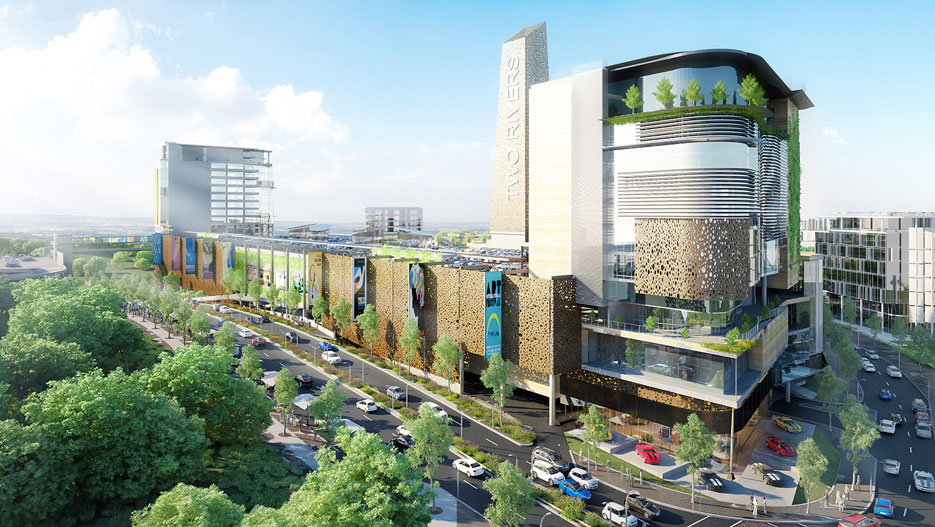Centum Investment: Creating Investment Opportunities for Other Investors in Kenya
Fred Murimi presents Centum, an investment company acting in 7 sectors of the Kenyan economy: real estate, financial services, fast moving consumer goods, power, agribusiness, health and education.
Interview with Fred Murimi, Director of Centum Capital at Centum Investment Company
How would you evaluate your sector? What are the trends at the moment?
Centum is actually in 7 sectors of the economy. We are in real estate, financial services, fast moving consumer goods, power, agribusiness, health and education. We are privileged in the sense that we have a good view of what is happening in different sectors of the Kenyan economy. Our business is to create investment opportunities that we can give to other investors. Across the 7 sectors that we are in we have seen a lot of growth and these are all very consumer facing sectors. These are the sectors that are benefiting from an increase in purchasing power from consumers. These are also sectors where many investors, both local and international, are looking for opportunities to enter. Specifically with the foreign investors, I would say that they are looking for opportunities of quality and skill. Our business is to create and provide them with these opportunities. Across the board in the companies we have set up or invested in, we see a lot of growth and volumes are growing and that is mostly because of increasing consumer purchasing power.
How structured is the market here?
We take the early stage risks of putting opportunities together, turning them into bankable projects and then bringing other investors into the opportunities we have created.
The way the market and the economy are structured will vary from sector to sector. Some will be heavily regulated and some not. The financial services sector is one that is heavily regulated. We have invested in banking and fund management and we are seeing the regulators increasingly upping the ante in terms of regulations. Those are welcome moves because they are important sectors to the economy and the more stable they are, the better platform for growth of the economy. We welcome the improvements in regulations. Other sectors such as the real estate sector are not as heavily regulated and there is still a lot of opportunity there. There is a huge demand for homes with a growing population looking to live and work in decent areas. Looking at trends, when you speak about urbanization in Africa in general, I think in 15 years about half the population will be living in cities that are yet to be built. There are lots of opportunities for investors to build those cities. Agriculture is also not a heavily regulated sector but that too will have to expand as the population expands and that will also present many opportunities. Typically, in our markets, we haven’t seen much in production and processing and those are areas we want to get involved in. There are plenty of opportunities for local and foreign investment as demand grows for food that is grown organically and meets certain standards. In terms of how the markets are structured in Kenya, we are fortunate that we have had an open economy and a free market for years. Business is used to competing both locally and internationally. I believe Kenya has a very well structured economy.

Next year’s elections might cause some tension in the market. What is your view on that?
Elections always bring uncertainty with them, which is expected. In business, elections are just one of the uncertainties that we have to face. We will look at all the uncertainties we face and then take a position and align accordingly. Particularly in Kenya, we have demonstrated that we are able to go through elections mostly peacefully. We have had incidents such as the one in 2007 but I think we have largely overcome them. Our last elections in 2013 were contested but we followed a very judicial process to determine the outcome and it went peacefully. For the most part, I believe business has continued to do well in spite of the elections. Uncertainty does bring risks but it also brings opportunities. As markets lower because of uncertainties, there are opportunities to invest that will become more valuable post-election. There will always be pains in democracy and that will come and go, but for businesses, especially in Kenya, we are here for the long run. We don’t make 3 year decisions. We make decisions based on a 10 or 20 year outlook.
What does Centum bring to the market?
Centum is a very unique company in that we create investment opportunities for other investors. We take the early stage risks of putting opportunities together, turning them into bankable projects and then bringing other investors into the opportunities we have created. If you look at it from an investor’s perspective that has a pool of capital when he comes to Africa, there are few investment opportunities that are of scale and quality. If investors are looking to invest or acquire a bank, there are few viable opportunities available. If they want to invest in the power sector there are not many power opportunities that investors can put their capital into. The constraint is really not on the capital side but on the supply side. How many people or companies are actively putting together investment opportunities? Do they do a package that they give investors access to? That is what makes Centum unique, because that is our business model. We take that early risk and create the opportunities for investors. There are not that many players in that space and there are many private equity players and strategic investors who are looking for opportunities.
Do you believe that international investors don’t see the market as you do?
Because of the nature of start-up business models, for any company that doesn’t understand the local landscape fairly well, there are certain risks that may not become apparent or they may be apparent but because of the lack of local knowledge or contacts, they might not be able to react to them as quickly or as easily as a local player might. That is the unique advantage we bring. The local experience we bring to the east African region. We understand the local landscape very well because this has been home for us for the last 50 years. We have the knowledge and contacts to get projects off the ground to be able to turn ideas into bankable projects. While someone could enter the country and do the same as we are doing, it is most likely that they may take longer to build a successful project than a local player.

How do you overcome the fact that international companies tend to stick to companies they know?
For us, it is about creating partnerships. In everything we do it is always about giving access to other investors. Some of those investors are strategic investors, some are private equity and some are funds that are looking for opportunities and what we provide is the access to the investments. It is through partnerships with such investors that we then have access to an even wider pool of investors. One fund could possibly have thousands of investors behind it. We are not looking to compete with those investors. We want to supply them with opportunities that they may not have been able to get into otherwise.
What are the current trends? Is there a sector that dominates?
We have been investing in real estate, financial services, fast moving consumer goods and power for a number of years now. Those are sectors that we understand fairly well and we have seen a lot of growth there. In terms of dominance, I think real estate, financial services and FMCG have been our largest sectors. We now see opportunities to really set up and create investments of quality in the health care space and the education space, as well as agriculture. That is where we have recently begun putting together various bankable investment opportunities for other investors. Overall, I believe that across all 7 sectors that we are invested in, I don’t necessarily see one being more dominant than another. In the long run, I don’t think that Centum will be exposed to any one sector by more than 20%.
What challenges do you face?
Our challenge is not in capital. There is a lot of capital. There are many investors looking to bring their money into this region. The sectors we are in are all growing and there are many opportunities so that is not a challenge either. Our challenges are in how quickly we can execute our ideas into bankable investment opportunities that will attract significant amounts of capital. In the last 7 years, we have been able to create significant investments and we have grown our own assets from about 70 million dollars in 2009 to about 500 million dollars this year. It is a challenge that we have been able to address. The challenge will always continue but we see that as an opportunity to grow in the different sectors that we are in. To execute our projects quickly, it boils down to people. It depends on getting high calibre people and bringing them into a high performance organization and ensuring that we are supporting them to deliver on each of their different opportunities.
As I was saying, we have been fortunate in being able to attract significant foreign investment into this country. Last financial year, we were able to bring in approximately 122 million dollars into the country in direct foreign investment and that was about 9% of Kenya’s direct foreign investment. It is a significant sum for one company. This money came from South Africa, London and China. We are looking to increase our reach into potential investors for the different projects we have available. So far we have done well and we will continue to be a significant player in attracting large amounts of capital into the country.

How interested are you in joint ventures or bringing partners into the company?
Everything we develop is for other investors. We are always looking to bring in other investors into the different projects we have created. In real estate, we have an urban master plan development on 102 acres. One of the components of that development will be a five star hotel and we are looking for operator investors in that opportunity. On that same development we constructed the largest retail mall in sub-Saharan Africa excluding the malls in South Africa. That has brought in a host of international as well as local retailers. One of those is the French supermarket Carrefour. We are looking to go into healthcare. There are many healthcare operators globally who are looking to expand into this region but they don’t have an asset they can work with or acquire. That is something we are developing. In agriculture, we have recently started planting herbs for export and again we have a partner who is providing us access to the European markets. Everything that we do is to attract other investors into the opportunities we have created.
Where do you see your company in 5 years time?
We have our Centum 3.0 strategy that covers 2014-2019. In that strategy, we will look to grow our assets from 300 million dollars in 2014 to 1.2 billion dollars in 2019. The way we will achieve this is through all the opportunities we are creating across different sectors. I see us managing our assets of 1.2 billion dollars across 7 sectors in the Kenyan economy. I see us having attracted significant sums of direct foreign investments into Kenya and the East African region by virtue of the opportunities we have created. I see us being a significant partner to the governments in the region because the sectors we are creating investment opportunities in are important sectors of the economy and the kind of investments we are making are investments of impact. For instance, in real estate, we are creating urban centres for cities across East Africa. One of our latest real estate projects is in Mombasa on the coast of Kenya. It’s a 10 000 acre parcel of land where we are looking to provide the entire infrastructure to support growth of an industrial city. That is significant for Kenya as well as the company and there will be many jobs created out of that opportunity and new products that might not have to be imported anymore.

What about your social responsibilities?
In our core business of creating investment opportunities, we look to be socially responsible in each of them. In the real estate project Two Rivers Mall in Nairobi, we are looking to develop a green space. Part of our social responsibility is also the amount of jobs we have created on this project, which is approximately 2000. In the project in Mombasa, we are looking to work with the community. We want to empower them with skills and then the community will be in the position to take up some of the job opportunities that will become available. In each of our investments, we always keep social responsibility in mind. In power, we are working with the local community to green the area around the project. We have actually given jobs to some of the youth to buy trees and we will buy trees from them. We hope to teach them skills that will enable them to go into business. Two years ago, we set up the Centum Foundation. The Foundation is about supporting entrepreneurs and particularly young entrepreneurs. The program involves providing young entrepreneurs with skills, mentoring them and in some cases providing them with seed funding for their different projects. To date, we have funded about 7 different organizations. These are young people who have not been able to get access to funding, mentors or skills. We hope to have an impact with these entrepreneurs and we hope to make the Foundation even bigger.